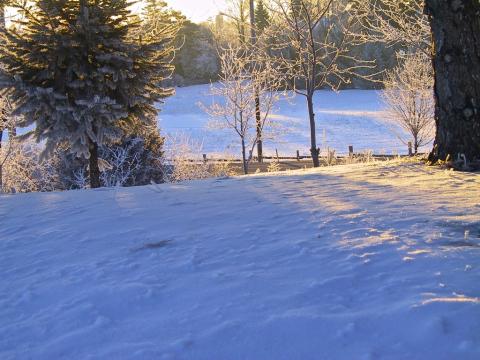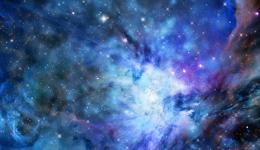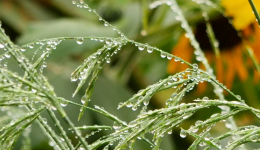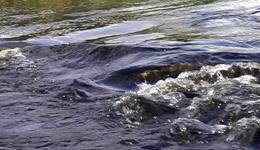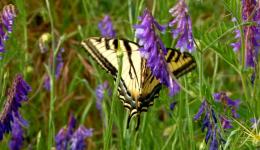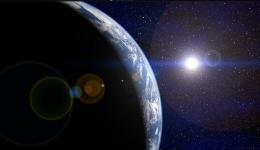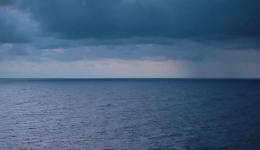Category:
As a Christian, I believe that all of us who live on planet earth ought to be the best stewards of the gift of this blue and green planet as we possibly can be.
And yet, after reading Michael Chrighton’s 2004 fictional novel, ‘State of Fear,’ I have to admit a certain amount of confusion. Without being a contrarian, there seems to be much presented in his arguments and attending footnotes, charts and grafts, that one cannot help but go ‘hmmmmmm, and be quizzical, a little sceptical even, given the now politically correct assumptions about ‘global warming.’
Early in the book, Crichton has one of his characters define global warming as “the heating up of the earth from burning fossil fuels.” (p. 80) Another character disagrees: . . . global warming is the theory that increased levels of carbon dioxide and certain other gases are causing an increase in the average temperature of the earth’s atmosphere because of the so-called ‘greenhouse effect.’ (p. 81, italics in the original)
Over the course of the book, other characters document what may be flaws in the theory of global warming. There is the indication that most of the warming in the past century occurred before 1940, before CO2 emissions could have been a major factor (p. 84). It appears also that temperatures fell between 1940 and 1970, even as CO2 levels increased (p. 86). Well, that doesn't fit, does it?
And then, temperature readings from reporting stations outside the U.S. are well known to be poorly maintained and staffed. Their accuracy cannot be counted upon. Those in the U.S., while probably more accurate, show little or no warming trend (affirms Crighton's novel: pp. 88-89). Crighton stated that “full professors from MIT, Harvard, Columbia, Duke, Virginia, Colorado, UC Berkeley, and other prestigious schools … the former president of the National Academy of Sciences … will argue that global warming is at best unproven, and at worst pure fantasy” (p. 90).
Somewhat disconcerting is the fact that temperature sensors on satellites report much less warming in the upper atmosphere (which the theory of global warming predicts should warm first) than is reported by temperature sensors on the ground (p. 99). Apparently, data from weather balloons agree with the satellites (p. 100).
(I intrude here to say that in August in the Summer of 2015, they've had to send ice-breakers into the far north Arctic, something that's never been necessary before in recorded history. The ice is thick and wide, contrary to what is constantly reported.)
Also asserted in Crighton's book is that Antarctica “as a whole is getting colder and the ice is getting thicker” (p. 193, sources listed on p. 194); The Ross Ice Shelf in Antarctica has been melting for the past 6,000 years (p. 195, p. 200-201); “Greenland might lose its ice pack in the next thousand years” (p. 363). Well, that's scary - or is it?
The Intergovernmental Panel on Climate Change (IPCC) is “a huge group of bureaucrats and scientists under the thumb of bureaucrats,” and its 1995 report was revised “after the scientists themselves had gone home” (p. 245-246). James Hansen’s predictions of global warming during a Congressional committee hearing in 1988, which launched the global warming scare, were wrong by 200 percent (.35 degrees Celsius over the next 10 years versus the actual increase of .11 degrees). In 1998, Hansen reversed himself by saying that long-term predictions of climate are impossible (pp. 246-247).
It goes on and on.
I am convinced we are basically screwing up the planet rather than caring for it as we ought, as stewards of God's gift to all humanity. However, I also think that the reports are in many cases wrong, exaggerated, and a form of scare-mongering. We need to care for the planet, but I also think that there have probably been huge changes of climate and geography over the course of many centuries. Often when it's said, "since they started keeping records," well, that's not very long at all, relatively speaking - relative say to 200 year (and more cycles) of the earth's heaving and healing regeneration of itself, with all the inherent and attending changes. No one's lived long enough to see and know; the records do not argue for or against, and have not been kept. The book argues that even the data that has been kept argues in a different direction from global warming. I'm not sure whether that's true or not; I'm just saying what the book says. No doubt there are others like it, written by those who are not mere cranks or obscurantists. But then 'most people' got the curved earth wrong at one juncture, not to mention the changing of the majority view that the earth was not the centre of the universe. Sigh.
We know that there is great capacity in the human body to, in many cases, heal itself. In fact, medical intervention merely aids the natural healing processes, allowing what would happen to happen, easing it, enabling and speeding it - but not creating it. At least, not yet, to my knowledge.
It seems strange to me that our wise ones throw around numbers re: the history of the planet, the age of the dinasaurs, carbon dating and so on, with "give-or-take a million years" (or was it a billion), making tight statements on wide years of infinite change and development (or the opposite); but when it comes to 'global warming' they make great and 'certain' predictions (rightly or wrongly) on the basis of and as surmised from relatively scance evidence, gathered in relatively and extremetly short and tight time-lines.
The world may be getting worse, geographically and climatically speaking. That may very well be so. AND, again, I think we should be good - better stewards of all of creation than we tend tobe. But I don't 'buy' a lot of the hype, the data, the doctrine of 'global warming.' It seems to me that it was introduced, as a cause, something new to be concerned about, at circa the turn of the Millennium. Almost as if since we couldn't believe in a God any more we could believe in the 'cause' of looking after Mother Earth (Gaia), for future generations.
We should, but not for the reasons usually given.
We should, because we were created, put here, to be stewards of Creation. And with Creation messed up, we long and pray and work towards the New Creation, ;joining really with God's purposes, which incudes not just looking after our garden (without pesticides) but the inner morality of spirit and heart.
We need a Saviour, maybe first of all, before the world needs saving or can be. Rather, it's all of a piece, because I think that God's huge reclamation project, includes people, places and things - everything and everyone (not that everyone will believe and choose to be a part or get on board).
The Cross reversed the tide; Jesus' life and death, resurrection and ascension has changed everything - potentially, actually, but not yet obviously. we're moving to an end point, an end-game, as is our whole world. It will result in the salvation of the planet and all things on it.
Before that it's going to seem worse, and get worse, but that's not all God wrote.

